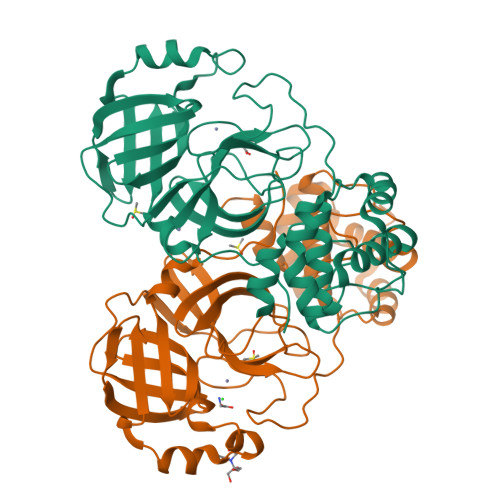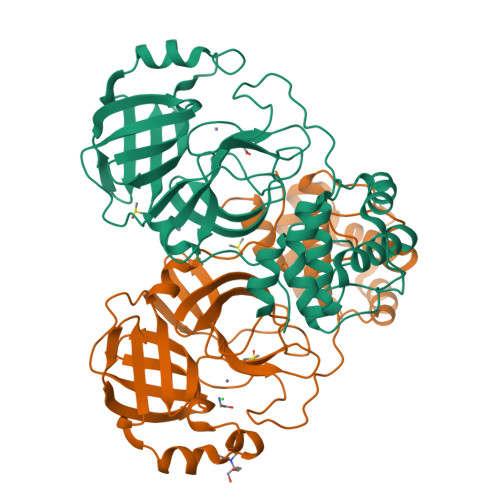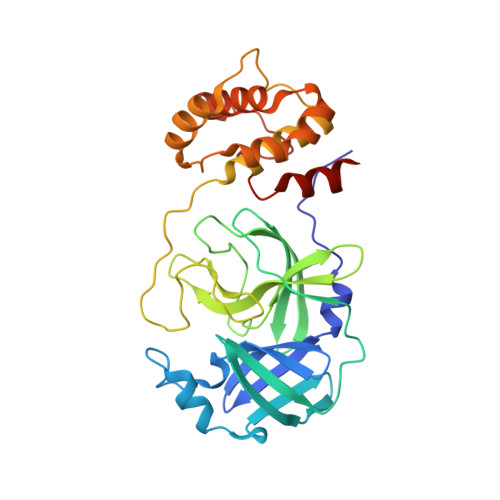Zinc 2+ ion inhibits SARS-CoV-2 main protease and viral replication in vitro.
Panchariya, L., Khan, W.A., Kuila, S., Sonkar, K., Sahoo, S., Ghoshal, A., Kumar, A., Verma, D.K., Hasan, A., Khan, M.A., Jain, N., Mohapatra, A.K., Das, S., Thakur, J.K., Maiti, S., Nanda, R.K., Halder, R., Sunil, S., Arockiasamy, A.(2021) Chem Commun (Camb) 57: 10083-10086
- PubMed: 34514483
- DOI: https://doi.org/10.1039/d1cc03563k
- Primary Citation of Related Structures:
7DK1 - PubMed Abstract:
Zinc deficiency is linked to poor prognosis in COVID-19 patients while clinical trials with zinc demonstrate better clinical outcomes. The molecular targets and mechanistic details of the anti-coronaviral activity of zinc remain obscure. We show that zinc not only inhibits the SARS-CoV-2 main protease (Mpro) with nanomolar affinity, but also viral replication. We present the first crystal structure of the Mpro-Zn 2+ complex at 1.9 Å and provide the structural basis of viral replication inhibition. We show that Zn 2+ coordinates with the catalytic dyad at the enzyme active site along with two previously unknown water molecules in a tetrahedral geometry to form a stable inhibited Mpro-Zn 2+ complex. Further, the natural ionophore quercetin increases the anti-viral potency of Zn 2+ . As the catalytic dyad is highly conserved across SARS-CoV, MERS-CoV and all variants of SARS-CoV-2, Zn 2+ mediated inhibition of Mpro may have wider implications.
Organizational Affiliation:
Membrane Protein Biology Group, International Centre for Genetic Engineering and Biotechnology, Aruna Asaf Ali Marg, New Delhi-110067, India. asamy001@gmail.com.





















